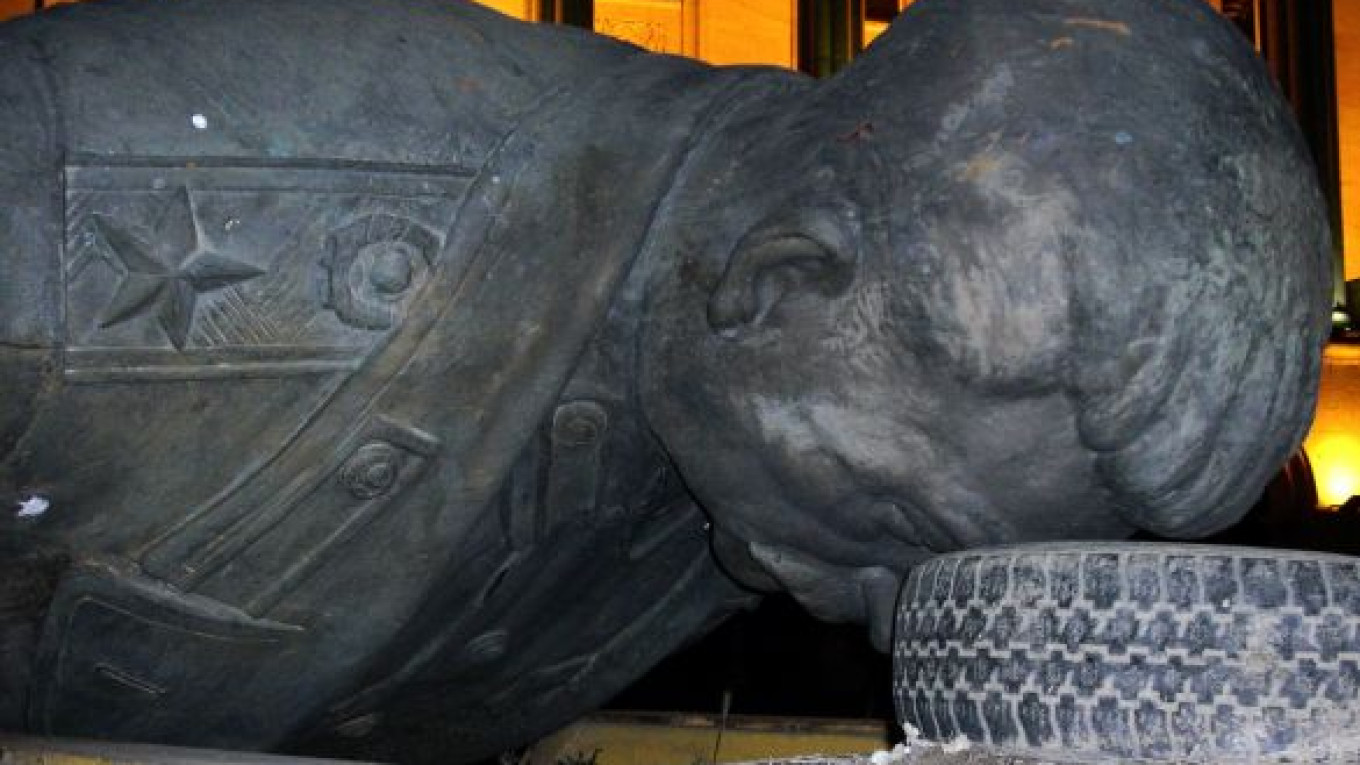TBILISI, Georgia — Authorities in Georgia on Sunday tore down another monument to Soviet dictator and native son Josef Stalin.
The monument in the town of Tkibuli in western Georgia was taken down two days after authorities tore down a bigger and more famous monument to Stalin in his hometown of Gori.
Both statues were brought down in the middle of the night in an apparent bid to avoid protests and media attention.
Stalin was born to a modest family of cobblers in 1878. Both monuments in his honor were erected before his death in 1953.
The Georgian government says a younger generation who have embraced Western ideals of freedom favor the dismantling of Stalin's monuments.
"A memorial to Stalin has no place in the Georgia of the 21st Century," President Mikheil Saakashvili said Friday. Saakashvili's government said a memorial to the fallen in the Russian-Georgian war of 2008 will replace Stalin's statue in Gori.
Georgian Culture Minister Nikolos Rurua said the government will also soon rename Georgian streets still carrying Stalin's name.
But Rurua said the body of Stalin's mother that rests alongside the nation's most prominent figures shouldn't be reburied as some in Georgia have suggested.
"The mother of Stalin carries no responsibility for what her dictator and tyrant son did to people," Rurua said on Imedi television Sunday. "Reburying her body isn't a good idea."
Stalin's mother Keke Dzhugashvili, born in 1858 to a peasant family in Gori, died in 1937. She was buried at the Mtatsminda Pantheon, a cemetery in Tbilisi where Georgia's writers and other cultural and public figures were buried.
Saakashvili began a crackdown on Soviet-era monuments last December when a massive World War II memorial was torn down in Kutaisi, drawing protests from the Georgian opposition and from Russia.
Prime Minister Vladimir Putin laid a cornerstone to a smaller replica of that monument in Moscow last month.
A Message from The Moscow Times:
Dear readers,
We are facing unprecedented challenges. Russia's Prosecutor General's Office has designated The Moscow Times as an "undesirable" organization, criminalizing our work and putting our staff at risk of prosecution. This follows our earlier unjust labeling as a "foreign agent."
These actions are direct attempts to silence independent journalism in Russia. The authorities claim our work "discredits the decisions of the Russian leadership." We see things differently: we strive to provide accurate, unbiased reporting on Russia.
We, the journalists of The Moscow Times, refuse to be silenced. But to continue our work, we need your help.
Your support, no matter how small, makes a world of difference. If you can, please support us monthly starting from just $2. It's quick to set up, and every contribution makes a significant impact.
By supporting The Moscow Times, you're defending open, independent journalism in the face of repression. Thank you for standing with us.
Remind me later.


